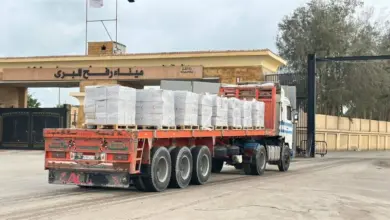Like other border towns, Rafah misses certain details of everyday city life. Lying at Egypt’s most northwestern tip, Rafah seems to be the frontiers of reality, where the state ceases to be and where the sight of bordering Gaza’s seafront fills one’s imagination about the life, history and future of the conflict-torn strip.
For a long time, the strip has been legally inaccessible to the inhabitants of Rafah, many of whose families have been fragmented by the border gates. But Gaza is alive in people’s imaginations, fed by the the vivid sight they manage to steal despite the surveillance towers spread along the 14km-border stretch.
But their glimpse of Gaza also comes from the tales of the dozens of smugglers and associated laborers whose underground tunnel economy has provided longed-for access to Gaza. No less than 1400 tunnels operate underground, providing a (relatively) safe passage for everything from tomatoes to BMWs to the besieged Gaza Strip. The life that beams across the tunnels and the promise of survival that this bears creates a public secret within the town.
Smuggling here is perceived simply as business and entrepreneurial wit amid the scarcity of economic opportunities in North Sinai at large. The people of the town do not normally villainize it for its illegality. If you live in Rafah, chances are you own a tunnel, or co-own it, or package goods that go into it, or carry them from one place to another, or drive them from their points of origins to their points of destination. An outsider approaching this intricate economic web can simply describe it as an elaborate underground insurgency movement that responds well to the Israeli-Egyptian choreographed closure of Gaza. And it is, in many ways. Rafah injects a new dimension to the realm of illegality.
Overground, at a slight distance from the web of tunnels, lie the fruits reaped by this underground economy. Extended peach orchards interrupt the pristine desert, along with sophisticated urban structures, Hindu-style houses, that look like little oddities in the middle of nowhere. Those are the fancy houses that launder the underground money of smugglers.
This account might come out as a little too exoticizing. Rafah is indeed home to border oddities. But it’s also a space to rethink one’s deeply entrenched urban givens and to negotiate through the in-betweeness of nation states, that strange condition born to artificial borders.




